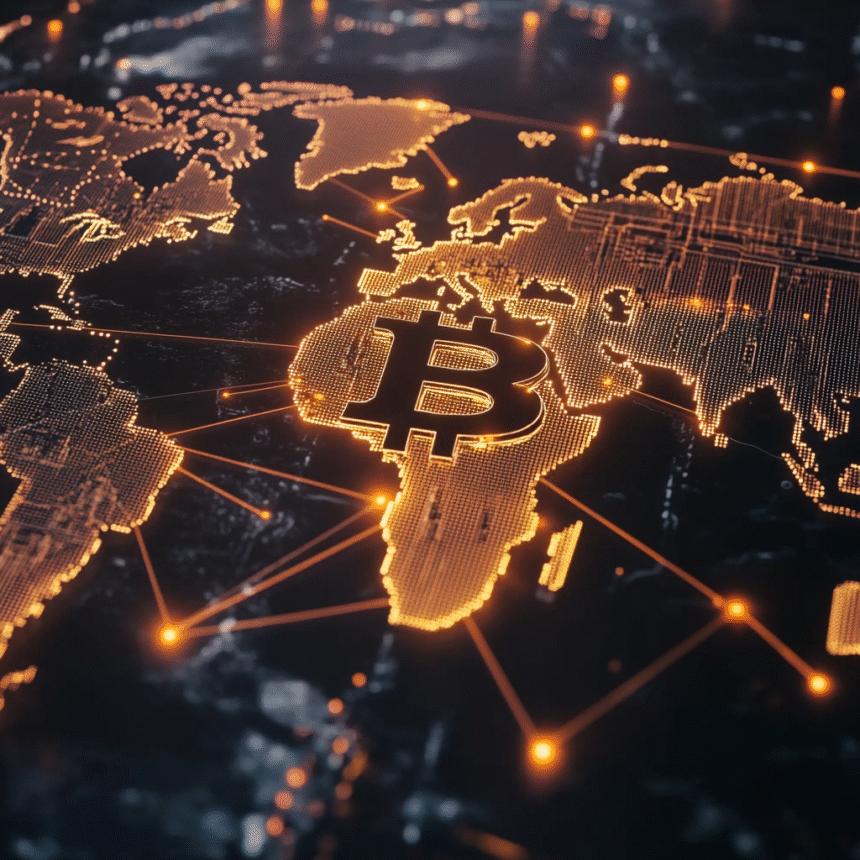Bitcoin isn’t just for crypto bros anymore—it’s starting to catch the eye of entire countries. As governments wrestle with inflation, sanctions, and a shaky U.S. dollar, Bitcoin and stablecoins are stepping up as a new kind of financial tool. These aren’t just digital coins; they’re neutral, flexible assets that could shake up how nations manage their money.
Think about it: the same features that make crypto appealing for everyday people—fast transfers, no middleman, global reach—work just as well for big players like businesses or even governments. Companies are already putting Bitcoin on their balance sheets or using stablecoins to settle deals. So, why not countries? The idea’s not as far-fetched as it sounds, and a few nations are already dipping their toes in.
Pakistan’s Bold Move
Take Pakistan, a country of over 240 million people with a GDP topping $1.25 trillion. It’s no small player, with a growing economy and relatively low public debt. But like many places in South Asia, it’s grappling with inflation above 10%. Sound familiar? It’s a lot like El Salvador, a country halfway across the world that’s already made waves by adopting Bitcoin.
Now, Pakistan’s getting in on the action with its new Pakistan Crypto Council, which is pushing for a Strategic Bitcoin Reserve (SBR). This isn’t just talk—Michael Saylor, one of Bitcoin’s biggest cheerleaders, is backing the idea. For a country often seen as traditional, this is a gutsy move. And it’s not just about betting on Bitcoin’s price going up. If done right, crypto could help countries like Pakistan sidestep the limitations of old-school finance and spark real economic growth.
This reserve is not intended for trading or speculation. It will remain untouched, reinforcing its stability as a national asset.
Bilal Bin Saqib, CEO of the Pakistan Crypto Council and Special Assistant to the Prime Minister
A Global Race for Bitcoin
Pakistan’s not alone in eyeing Bitcoin. Rumors are swirling that Brazil, Japan, China, and Russia are also thinking about building their own Bitcoin reserves. What do these countries have in common? They don’t use the U.S. dollar as their currency, and many deal with high inflation or other economic headaches. A Bitcoin reserve could act like a financial shield, protecting against currency swings and laying the groundwork for long-term stability. It’s like a global game of chicken. The first countries to jump in could score big think better trade options, fewer regulatory headaches, and a flood of new investment. Wait too long, and you’re stuck playing catch-up in a crowded field. It’s game theory on steroids, and emerging economies have the most to gain. Breaking Free from Old Systems For countries like Pakistan, Bitcoin and stablecoins could be a game-changer in international trade. Many emerging nations face roadblocks like currency controls or sanctions that lock them out of systems like SWIFT. Crypto offers a workaround. Bitcoin and dollar-pegged stablecoins provide a way to move money across borders without begging for permission from traditional financial gatekeepers. Take Bhutan, a small country that’s quietly amassed a stash of Bitcoin. They could use it to settle trade deals with neighbors, especially as more countries warm up to crypto. Holding Bitcoin also helps governments hedge against their own currency losing value, making them more attractive to foreign investors. Plus, crypto-friendly policies can turn a country into a hub for blockchain innovation or even crypto tourism look at El Salvador, where Bitcoin’s legal tender status has drawn curious travelers and businesses alike.
A Lifeline for the Unbanked
It’s a strategic game where every move has consequences, intended or not.
Emerging economies often have huge numbers of people who don’t have access to banks. In Pakistan, like many places, millions rely on smartphones but can’t get a bank account. Crypto can bridge that gap. Imagine governments handing out digital wallets, letting people send money, pay for goods, or receive remittances from family abroad—all instantly. Stablecoins make this even easier, turning cross-border payments into a quick tap on a phone. This isn’t just about convenience; it’s about pulling people into the global economy. Pakistan’s working to modernize its financial system, and crypto could help reduce poverty and boost local businesses by making money flow faster and cheaper. The Road Ahead Let’s be real—crypto’s not a magic bullet. Bitcoin’s price swings can be a rollercoaster, and pouring public money into digital assets isn’t a guaranteed win. Countries need to play it smart, moving gradually and making crypto part of a bigger plan that benefits everyday people, not just policymakers. But the potential is huge. By embracing Bitcoin and stablecoins, emerging economies can break free from the shackles of outdated financial systems. Bitcoin’s limited supply and deep liquidity make it a solid way to diversify national reserves, and selling strategically during market highs could bring in serious cash. The first country to nail this strategy could set off a global race, with others scrambling to keep up. Pakistan’s Bitcoin reserve is more than a headline—it’s a signal that crypto’s ready for the big leagues. If they get it right, the upside could be massive, not just for them, but for any country bold enough to rethink how money works.
Disclaimer: This article is for general information only and isn’t legal or investment advice. The views are mine alone and don’t necessarily reflect those of Vizi.















